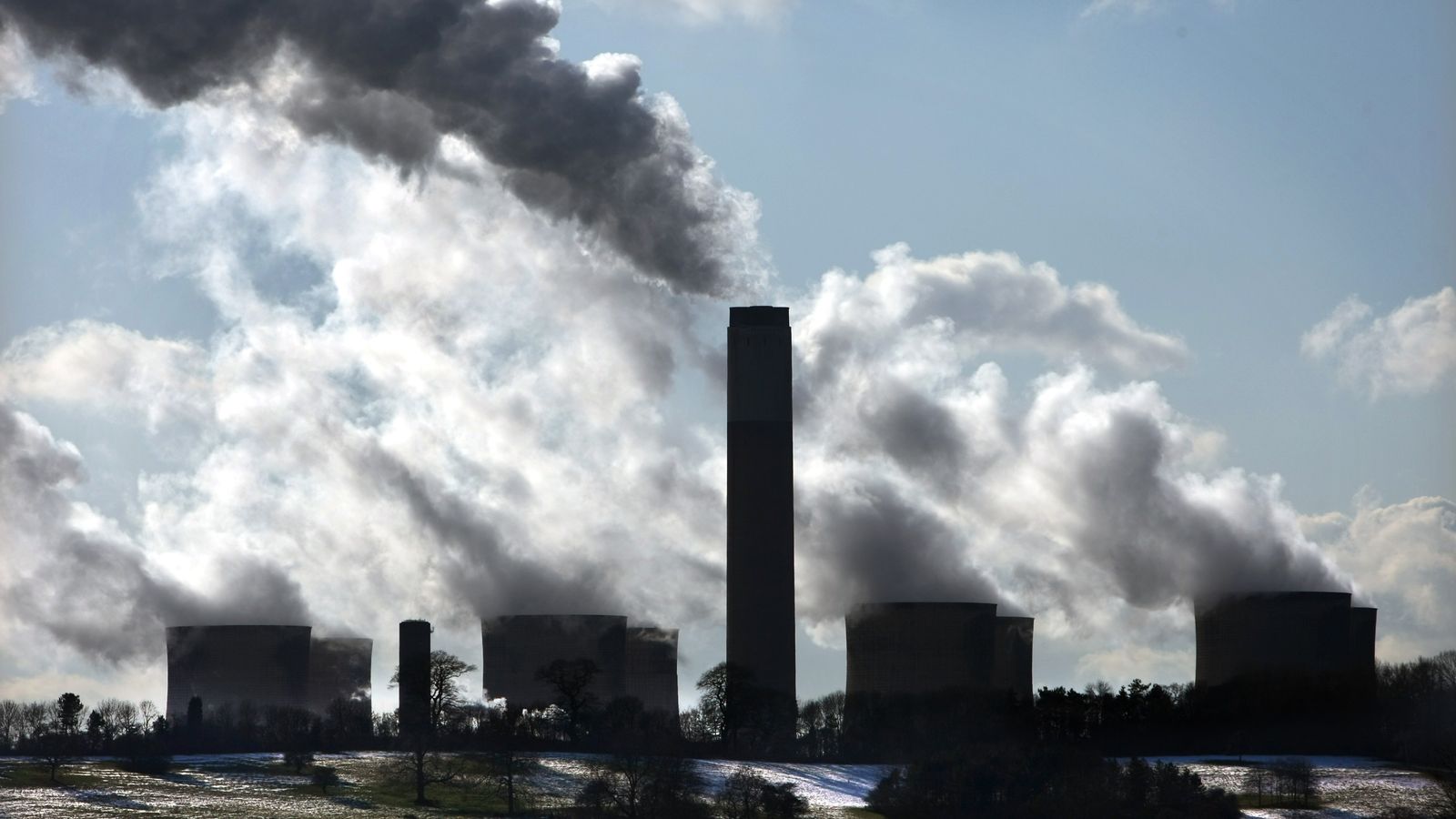The End of an Era: The Closure of the Last Coal-Fired Power Station in the UK
On Monday, the United Kingdom marked a significant milestone in its energy transition as the last coal-fired power station, Ratcliffe-on-Soar, officially ceased operations. This closure not only symbolizes the end of an era but also highlights the UK’s commitment to renewable energy and its ambitious climate goals. With a history spanning 142 years, the Ratcliffe-on-Soar power station in Nottinghamshire has been a pivotal player in the country’s electricity generation landscape since its inception.
A Historical Perspective
The journey of coal in the UK began in 1882 when the country became the first in the world to utilize coal for public power generation. For over a century, coal was the backbone of the UK’s energy supply, peaking in 1990 when it accounted for approximately 80% of the nation’s electricity needs. However, as awareness of climate change grew and the impacts of fossil fuel consumption became increasingly evident, the UK began a gradual transition away from coal.
The closure of Ratcliffe-on-Soar marks the culmination of this transition. The site’s turbo generator was "desynced" from the national grid just after 3 PM on Monday, officially ending its role in the UK’s energy mix. This event is particularly significant as it positions the UK as the first G7 nation to completely phase out coal-fired power generation.
The Shift to Renewable Energy
In recent years, the void left by coal has been filled by renewable energy sources, particularly solar and offshore wind. The UK has made remarkable strides in increasing its renewable energy capacity, with coal contributing less than 1% of the country’s electricity generation in recent years. On the day of its closure, Ratcliffe-on-Soar was still operational, providing 0.7% of the nation’s electricity, a stark reminder of its once-dominant role.
Energy experts, including Dhara Vyas, deputy chief executive of Energy UK, have praised this transition. “Ten years ago, coal was the leading source of this country’s power—generating a third of our electricity. To get to this point just a decade later, with coal’s contribution replaced by clean and low carbon sources, is an incredible achievement,” Vyas stated.
Economic Implications
While the transition to renewable energy is commendable, it has not come without challenges. The UK’s reliance on natural gas has led to some of the highest industrial power prices in the developed world, as reported by the International Energy Agency. This situation has raised concerns about the competitiveness of UK manufacturing, particularly in light of recent announcements regarding the closure of major industrial sites, such as the country’s largest virgin steelworks.
The closure of Ratcliffe-on-Soar also raises questions about job security for the 170 staff members employed at the facility. While most will remain on-site during the two-year decommissioning process, the long-term implications for coal workers and the communities that have relied on these jobs are significant.
A New Era of Energy
Despite the challenges, government officials are optimistic about the future. Energy Minister Michael Shanks remarked, “Today’s closure at Ratcliffe marks the end of an era, and coal workers can be rightly proud of their work powering our country for over 140 years.” He emphasized the government’s commitment to creating new jobs in renewable energy sectors, including wind power and emerging technologies like carbon capture and storage.
The Labour government has set ambitious targets, aiming for net-zero emissions from electricity generation by 2030. This commitment is reflected in recent policy changes, including the lifting of the de facto ban on onshore wind farms, which is expected to bolster the UK’s renewable energy capacity further.
Conclusion
The closure of Ratcliffe-on-Soar power station is a poignant reminder of the UK’s energy evolution. As the nation bids farewell to coal, it simultaneously embraces a future powered by renewable energy. While challenges remain, particularly regarding energy prices and job security, the UK’s commitment to a sustainable energy future is clear. The transition from coal to renewables not only addresses climate change but also paves the way for new economic opportunities in the green energy sector. As the UK steps into this new era, it stands as a beacon for other nations aiming to reduce their reliance on fossil fuels and combat climate change.
